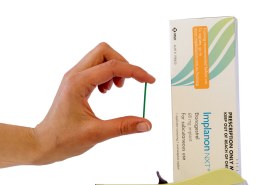I noticed my urine is light pink colour and there is small blood stain in my urine. Should I go and see doctor?
Experiencing heavy periods, medically termed menorrhagia, along with severe cramps and fatigue can be concerning and warrants further evaluation. While variations in menstrual flow and symptoms can occur, significant changes in your menstrual pattern, especially if they are persistent, should be assRead more
Experiencing heavy periods, medically termed menorrhagia, along with severe cramps and fatigue can be concerning and warrants further evaluation. While variations in menstrual flow and symptoms can occur, significant changes in your menstrual pattern, especially if they are persistent, should be assessed by a healthcare professional. Here are some potential considerations and steps you might take:
1. Potential Causes:
– Hormonal Imbalances: Conditions like polycystic ovary syndrome (PCOS) or thyroid disorders can disrupt hormonal balance, leading to heavy bleeding.
– Uterine Fibroids or Polyps: These benign growths in the uterus can cause increased menstrual bleeding and pain.
– Adenomyosis: This condition involves the growth of endometrial tissue into the uterine wall, often resulting in heavy, painful periods.
– Bleeding Disorders: Conditions like von Willebrand disease can affect blood clotting and lead to heavier periods.
– Endometriosis: This condition, where tissue similar to the uterine lining grows outside the uterus, can cause severe cramps and heavy bleeding.
2. Symptoms to Monitor:
– Bleeding: Track the frequency of pad or tampon changes. Soaking through one every 1-2 hours is a sign of heavy bleeding.
– Clots: Passing large blood clots can indicate excessive bleeding.
– Duration: Periods lasting longer than 7 days are considered prolonged.
– Fatigue: Persistent tiredness could be a sign of anemia, often resulting from chronic blood loss.
3. Diagnostic Steps:
– Medical History and Physical Exam: A thorough history and pelvic exam can provide initial insights.
– Blood Tests: These can check for anemia, thyroid function, and clotting disorders.
– Pelvic Ultrasound: This imaging test can identify structural abnormalities like fibroids or polyps.
– Endometrial Biopsy: In some cases, sampling the uterine lining may be necessary to rule out other conditions.
4. Management Options:
– Medications: Nonsteroidal anti-inflammatory drugs (NSAIDs) like ibuprofen can help reduce pain and bleeding. Hormonal treatments, such as birth control pills or a hormonal IUD, can regulate periods and reduce bleeding.
– Iron Supplements: If anemia is present, iron supplementation may be needed.
– Surgical Options: In cases where medical management is ineffective, procedures like hysteroscopy, endometrial ablation, or even hysterectomy may be considered, depending on future fertility desires.
5. When to Seek Immediate Care:
– If you experience dizziness, fainting, or a rapid heartbeat, these could be signs of severe anemia or significant blood loss, requiring urgent medical attention.
Given the complexity and potential implications of your symptoms, I recommend scheduling an appointment with a gynecologist or healthcare provider. They can provide a comprehensive evaluation and tailor a management plan specific to your needs and health goals.
See less

Thank you for asking the question. For a more in-depth look at blood in the urine, please find this article helpful: There's Blood in My Urine! What Do I Do? Having blood in your urine, even if it's just a light pink tinge, can be concerning. It's important to understand that while it can be causedRead more
Thank you for asking the question. For a more in-depth look at blood in the urine, please find this article helpful: There’s Blood in My Urine! What Do I Do?
Having blood in your urine, even if it’s just a light pink tinge, can be concerning. It’s important to understand that while it can be caused by harmless things, it could also indicate a more serious underlying condition. Here’s what you should do:
In the meantime, here are some possible explanations for light pink urine:
Remember, this information from Medical Channel Asia is not a substitute for professional medical advice. Consulting a doctor is crucial to get a proper diagnosis and treatment plan.
See less